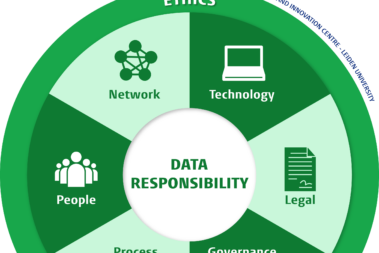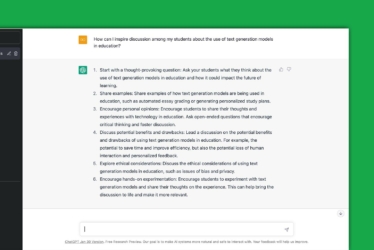Insights, Projects
My Data 2020: Building Inclusive Smart Cities
Risks, challenges and solutions for data-driven public-private partnerships
In December 2020, the Centre for Innovation alongside Johannes Mikkonen, a senior consultant at Demos Helsinki, held a session “Building Inclusive Digital Cities” at the MyData 2020 Conference. We presented our most current research on the challenges that Data-Driven Public Private Partnerships (DDPPPs) face, particularly in the context of smart cities. Our goal was to work with participants to investigate what they thought are the most pressing challenges and possible solutions. This blog shares the results of this discussion.
To begin with, CFI provided the audience with insight into the emerging challenges of DDPPPs. From the outset, we focused on the power imbalance between the private and public sectors, as well as the associated risks involved. Mikkonen considered these challenges in the context of smart city development and the role of public bodies to serve the interests of residents. He introduced the importance of building public governance that is capable of developing people’s rights and technologies in harmony.
Find the presentation here or watch the video of the entire working session here.
Key findings
The key findings that emerged from the collaboration between the CFI and Demos Helsinki:
- Transparency: Increased clarity about products, services, production models and operations for both public actors and residents.
- Human-centric design: Informing the public and creating structures for citizen-input into technological developments that impact residents.
- Agreements: Ensuring that the public and private sector have compatible goals, incentives and ethical considerations.
- Responsibility: Consistent and responsible data usage, creation, product/operation design etc.
Participants in the session came from a variety of backgrounds, namely medical, real estate, as well as PhD programs in legal and ethical fields which resulted in lively discussion with good-quality insights.
The Challenges
The participants selected four top challenges to DDPPPs and smart-cities:
- Transparency vs. Advancement: Balancing transparency with the need for advanced technology in order to provide residents with adequate services.
- Value and Consequence Assessment: Understanding the available solutions and their associated value and consequences – consequences that may result from a result of lack of transparency and expertise within public bodies.
- Differing Cultures and Ethical Standards: Identifying and managing different agendas and cultures (in the broadest sense of the term) and the resulting impact on the ability to align ethical standards.
- Citizen Agency: Agency for residents when cities and public organisations make decisions en-masse and setting standards for resident understanding and participation in the decision-making process.
The Solutions
Ultimately, when the group came to discuss solutions to the selected challenges, a new challenge emerged – the diversity of backgrounds and perspectives of those implementing the technology and generating solutions. Any solution to any challenge, needs to address who is involved in making ethics-based decisions and how to reach some form of standardisation.
The group identified three stages of cooperation in order to effectively overcome any challenge:
- Language and Discussion: Establish a common language and terminology to avoid confusion and misinterpretation (or purposeful vagueness). As these technologies require increasingly diverse groups to come together, establishing the common ‘language’ becomes even more vital.
- Common goals and measurements: Find common quantitative and qualitative goals. Often, after managing to bring together the technical, legal, humanitarian, civil, city and national experts, the experts must define common goals. These groups must establish a structure for dealing with conflicts of interest. An example approach to this would be discussing how to “quantify life” by weighing various variables against one another.
- Implementation, signing a code and accountability: Once coming to some form of agreement, one of the most difficult steps may be implementing the agreement. Some ideas of how to institutionalize these agreements include signing an international agreement, creating regional laws, or requiring DDPPP partners to sign a code of ethics similar to that of the Hippocratic Oath.
Moving Forward
While remaining optimistic about moving forward and breaking down the steps in each of these solutions, both the panelists and the discussion group agreed that this is a process that will take time, investment and intentional care. While creating ethical standards for DDPPPs universally is ideal, it may be best to start with a small case study and move forward from there.
Participating Organisations
Centre for Innovation | This workshop took place as part of the larger theme of data-driven public private partnerships that the CFI will be focusing on in the coming year. Insights from this group will inform further research and discussions with industry partners.
Demos Helsinki | This workshop is part of Demos’ work on strengthening more fair and ethical data usage to support transformation towards human-centric public governance and sustainable built environments. Produced insights are utilised in TOKEN, a European Union Horizon 2020-funded project working to explore the value of DLT in the public sector through the development of an experimental ecosystem.


Get in touch

Joanna van der Merwe
Privacy and Protection Lead
j.s.van.der.merwe@sea.leidenuniv.nl







